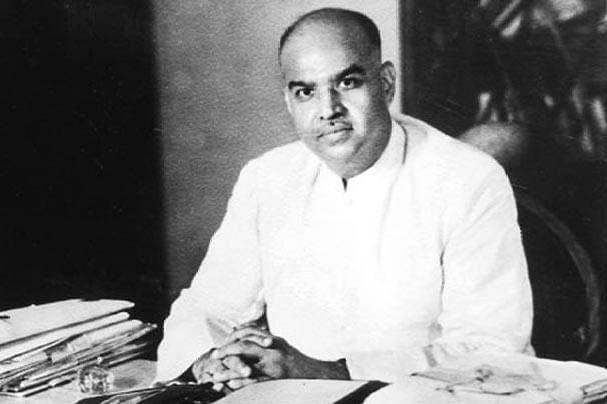
A phase of the Indian struggle: Book written by Syama Prasad Mukherjee was banned by the British Raj in India.
Syama Prasad Mukherjee was the founder of the Bharatiya Jana Sangh, the predecessor of the Bharatiya Janata Party (BJP). He is undoubtedly one of the most iconic and controversial leaders in India’s recent history. In spite of his significant political and ideological differences with Jawaharlal Nehru, Dr Mookerjee was inducted to the first cabinet of independent India. However, following the Delhi Pact between the Prime Ministers of India and Pakistan, Dr Mookerjee resigned from the cabinet. His role during the Great Bengal Famine of 1943 and the Great Calcutta Killings and Noakhali Carnage of 1946 was historic. His premature death in custody–in Kashmir–remains one of the unsolved mysteries of India’s political history. Dr Mookerjee was an educationist, politician and patriot who often opposed the official narratives of his time but fought consistently for India’s independence and pre-eminent position in the world. His life has remained largely unexplored till now. This biography aims to rectify that omission by examining his life in detail and shedding light on the turbulent and contentious events of his times.
He wrote many Books, here is the list:
- A phase of the Indian struggle: This book was banned by the British Raj in India.
- Pledge for an Integrated India: Dr. Mookerjee in Throes of Jammu and Kashmir, 1951 to 1953 Syama Prasad Mukherjee: Many great people in India’s postIndependence history have gone into oblivion only because they were not part of the Nehruvian consensus or refused to adopt models of communism or socialism. These forgotten personalities were also proud of India’s rich history and dreamt of bringing back its lost glory
- Leaves from a Diary: This volume contains Mookerjee's autobiographical writings and the English translation of his "Bengali Diary". The diary is narrative in nature and chronicles the history of Bengal from 1937 to 1946, the most crucial phase in Mookerjee's political career. It gives a fairly detailed account of his experience as an MP in Bengal from December 1941 to November 1942. It was during this period that he emerged as spokesman of the Hindu cause and was later elected President of the Hindu Mahasaba in 1944. The Bengali diary contains recollections which are more personal and reflective, including accounts of family life.
- Awake Hindusthan:
